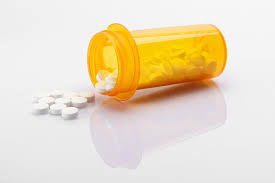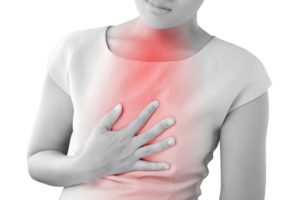Lately, I’ve had a lot of clients coming to see me after a diagnosis of GERD by their family doctor or GI specialist. What alarms me is that acid-neutralizers and/or acid-reducers are prescribed without concern for the long-term consequences.
GERD stands for Gastro-Esophageal Reflux Disorder. It manifests as a feeling of ‘heartburn’, regurgitation of partially digested food, and general ‘indigestion’.
There are 2 main causes of GERD:
GERD can have a structural or mechanical origin, such as a hiatal hernia—in which the stomach has been pushed above the diaphragm, causing the valve at the top of the stomach to malfunction—allowing stomach contents to reflux up the esophagus. Hiatal hernia can be caused by overeating, obesity, constipation, chronic bronchitis, pregnancy and heavy lifting. A sliding hernia is intermittent; however, more often it is a permanent change in the position of the stomach.
However, most cases of GERD involve a pH imbalance. It is assumed by doctors that the GERD patient is producing too much stomach acid. In the interest of protecting the delicate lining of the esophagus and the enamel on the back teeth, acid-secretion reducers called proton-pump inhibitors (PPIs) are usually prescribed. However, no investigation is done to prove that the acid that is refluxing is actually stomach acid. More often, the fermentation acids form when food sits in the stomach too long when the pH there is too high (too alkaline/basic). The consequence is a flaccid esophageal sphincter (valve), allowing GERD to occur.
 Side effects of PPI Use for GERD
Side effects of PPI Use for GERD
Many GERD patients have been using PPI drugs for more than 3 months, and this concerns me for these reasons:
1.Reduced stomach acid reduces the digestion and absorption of proteins need to repair structural body proteins such as muscle, hormones, blood cells, hair, skin and nails. Protein digestion is acid-dependent.
2. PPIs reduce the absorption of important minerals like calcium, magnesium, zinc and iron. This could have detrimental effects on numerous body tissues including bones, skin and muscles and body systems such as the immune and nervous systems.
3. Decreasing the stomach pH via PPIs allows for the growth of certain potentially unhealthful micro-organisms to flourish where they would not ordinarily, such as candida yeast and h.pylori bacteria.
4. The longer the individual has been using PPIs, the longer it will take for them to wean off them completely, exposing them longer to the undesirable side effects.
A New Approach to GERD
If you experience bloating and gas along with your GERD, then probably, neither antacids nor PPIs will work for you. That’s because they increase the stomach pH to one that is not conducive to proper digestion.
There are better ways to prevent GERD: through lifestyle, nutrition and proper digestive support. My Digestive Rejuvenation Program provides personalized recommendations that address the root cause of GERD.
Imagine your life without GERD symptoms…

